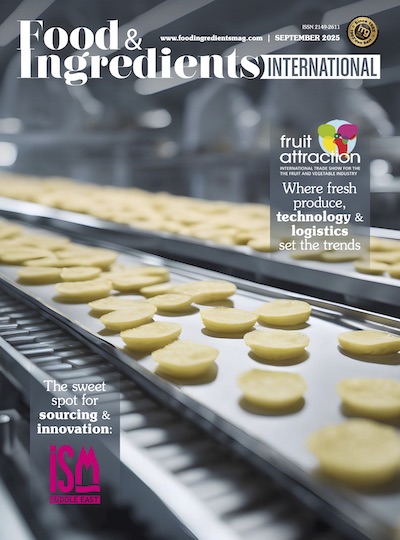Antioxidants may also help to decrease the risk of ather osclerosis by preventing lipid oxidation in the blood, making the lipids less likely to stick to artery walls. Tea consumption also appears to improve the function of the lining of the blood vessels. This means that arteries have a better capacity for expansion and contraction as needed, and will be less prone to developing the plaques and esions associated with heart disease.
Tea also has importance with respect to dental heaith. Dental cavities are caused by a combination oral bacteria, sugars, and acids. Tea consumption can help to reduce cavities through several mechanisms:
* The tea plant naturaly contains fluoride in its leaves which makes tooth enamel stronger and more resistant to acids.
* Tea helps to prevent bacteria from sticking to the tooth surface.
* Tea helps to decrease the acid production of oral bacteria.
* Tea decreases the activity of the oral enzyme amylase, which is responsible for breaking down starch into sugar in the mouth.
Since it contains major elements and vitamins, tea is also good for patients suffering from hypertension. It is generally agreed that, for most people, moderate caffeine consumption is harmless. Many people fınd that caffeine boosts mental carity and alertness in a pleasing way.
People also obtain wonderful results if they add tea to their bath. First of all, the skin will become nicely tanned, This is then followed by tea’s rejuvenating effects. As tea growers do not use pesticides, Turkish tea is natural and healthy, No additives or chemicals are used in either tea gardens or in the production process. Turkish tea does not coritain much caffeine, either.
Production of tea in Turkey
Tea production in Turkey was initiated in the early years of the Republic and carried out in a microclimate along the Eastern Coast of the Black Sea Region. After successful resuts had been obtained, the region extending from Arakli to the Republic of Georgia was allocated to tea agriculture. In this region Rize, Ordu, Giresun, Trabzon and Artvin are the provinces in which tea is produced. Turkey takes its place on the upper limit of tea ecologies. Tea is one of the most important sources of revenue for the inhabitants of this region,
In Turkey, the possibility of tea cultivation was determined in 97 around Rize pravince and cultivation was fırst started by a law in 1924. In the same year the Tea Research Institute was established. Afterwards, research studies began to be conducted and tea cultivation began on a commercial base. In 1947, the first plant for processing green tea leaves was opened in Rize.
Although the tea business in Turkey is a relatively new activity compared with the other producer countries, tea cultivation and the industry have shown very important improvement in a short time. While the production of dried tea was below 25 000 tons in 1950’s, this figure reached signifıcant quantities in recent years. Today, Turkey holds a signifıcant place among the world’s largest producer countries with a share of more than 5%. According to the FAO statistics, Turkey ranks fifth in world production of tea after China, India, Kenya and Sri Lanka.
Dried Tea Production in Turkey (Quantity, Tons)
Years Quantity
2004 201 663
2005 217 540
2006 201 866
2007 206 160
2008 198 046
2009 198 601
Source: FAO
In the production process, the processing methods of Orthodoks, CTC and Rotervane are used in Turkey. Tea gardens in Turkey were established from seeds. Cultural precautions such as maintenance, pruning, fertilization and harvesting are carried out in conformity with scientifıc techniques in order to obtain a fresh tea product conforming to the production of top quality dried tea. Today, tea is one of the national drinks of the Turkish people along with ayran, sahlep, boza and Turkish coffee. Turkish people drink a great deal of tea ali day long especially at breakfast and in the evening. Turkish people are famous for their hospitality and it is very common to serve tea to guests in Turkey. More than 200.000 tons of black tea is consumed in Turkey every year.
Standardization
As a result of establishing fertile, quality plantations; the application of modem appropriate cultivation methods on the plantations by growers and the improvements achieved in the manufacturing industry, Turkish tea is praduced in compiance with international standards. TS 4600 Turkish Black Tea Standard, which is almost in conformity with the ISO 3720, is appied in the production and marketing of blacktea in Turkey. For blacktea exportsr ISO 3720 is applied.
EXPORT
At the start of tea cultivation in Turkey, the primary goal was only to meet the domestic demand. However, until 1963 tea production was insufficient and the gap between production and demand was met by imports. Afterwards, besides meeting domestic demand, tea exports also started. As a consequence of policies implemented in exports, Turkish tea exports have reached signifıcant levels in some years.
Tea is exported from Turkey both in buk and in consumer packages. 25% of total Turkish tea exports were in packaged form and 75% were in buk in Turkey, apart from traditional tea, tea bags are also produced, consumed and exported. In recent years, tea bags have started to be very common.
The main destinations of Turkish tea are the European Union countries, the USA and Northern Cyprus Turkish Republic. Among the EU countries, Belgium, the Netherlands, Germany, France and the United Kingdom are the most important markets.
Turkish Tea Exports
(Quantity, Ton s; Value, 000 US $)
Years Quantity Value
2004 5 928 6 856
2005 5 758 6 989
2006 2 673 5613
2007 3 330 7 570
2008 3 191 11232
2009 1 808 7 754
2010 2 191 9 163
Source: Turkish Statistical Institute 2011 2 242 10 367
SOURCE: Repubic of Turkey – Ministry of Economy



















